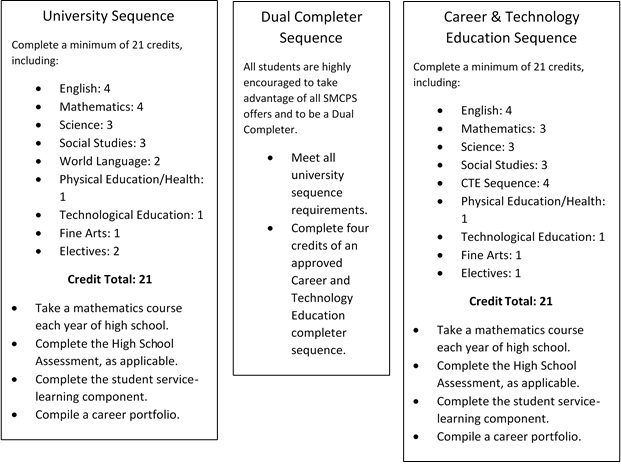Ah, March. The third month of the year brings with it college basketball obsession from every other male in the United States, a day dedicated to shamrocks and assorted shades of green, and the highly-anticipated Spring Equinox on the 20th that should banish the frigid temperatures of winter. (Though this year, we may not be so lucky; winter just refuses to go quietly. Nevertheless.) Another thing that happens around this time, with perhaps more relevance to high schoolers, is class registrations for next year. As is known, students have most of the power in regards to what classes they’ll be place in. But as the cliche goes: “with great power comes great responsibility”. Understandably, it’s easy to get caught up in how one might balance out their schedule- what classes you’ll want to take to graduate, what classes you should take (and what looks good on college applications), what classes you want to take, and somehow managing to fit it all into an eight-period day. If you are feeling frazzled over what to take and what to register for, just take a breath and read on for some advice on how to manage and figure out which classes you’ll be walking into on the first day of school.
For starters, you should know what the requirements are for graduating high school. To graduate from a St. Mary’s County public school, you’re required to have a minimum of 21 credits. To help better organize this, there are two separate “program pathways” a student can follow. According to the St. Mary’s County Program of Studies, “students must select a University Sequence or a Career and Technology Education Completer Sequence.” This chart, almost identical to the one displayed in the 2014-2015 Program of Studies, gives an overview of what’s required of all students to become eligible for graduation.
In the case of incoming ninth graders, options are somewhat limited and they’re mostly unaware of what’s really offered here at Leonardtown. But by the time these anxious freshmen are ready to move up a step in the hierarchy of high school and pick next-year’s classes, they have a better idea of what they want take and what’s offered. (Though confusion often occurs at every grade level for choices about the future.) So, where do you start? Seeing a counselor is always a good place to start.
When counselors are working to develop a schedule with the student, the most important aspect to keep in mind is that no student follows a set structure or pattern. “Each student is unique, each student has different aspirations, strengths, weaknesses, ect.” Ms. Crowder, one of the four school student counselors here at Leonardtown, advises. “I say that because there’s no cookie-cutter approach when placing students in classes. We start the process by giving students a checklist of classes appropriate for their grade level as a guide to begin looking. Then they can take it home, review it with their parents, and be prepared when they sit down and actually choose classes.” As it would be assumed, the class list lays out every possibility for a student in each subject- broadening the knowledge of the different classes and levels available to each student; and by giving this ahead of time, they can discuss the options with their parents or at least develop some idea of what they want to take in the approaching year. Counselors, while keeping in mind this and the graduation requirements, “… also consider the student’s interests and strengths when placing them in classes and choosing the level of class. Often, when a student is math/science oriented, we will push to challenge in a higher level in those classes and compensate by maintaining the same level in other classes or even dropping a level to allow the student to have additional ability to focus on the math/science.”
After receiving the classes-checklist sheet, it’s probable that students will know what classes they want to take, though there may be some debate on what level class to take: AP or CM? Again, this a decision that depends on each student. Teachers that you have currently give their recommendations, but of course teachers can’t know what you’re feeling about the possibility of advanced placement classes. As it could be guessed, the work load is heavier in AP classes. Through interviewing Mrs. Gill, an 8th-year English teacher here who’s taught levels from standard to AP, it seems a lot of the same activities are used in both classes. “The intention behind AP courses,” she says, “is to permit high school students to earn college credit during high school, thus these courses should mirror college-courses.” The pace is faster than a high school course would move, so AP english classes could “cover two of three novels for every one taught to a CM or S level literature course”, Mrs. Gill gives as an example. Mr. Cropper, an AP US History teacher, said that the AP classes have “the rigor of college classes.” In terms of history classes, the AP option covers a much larger portion of history- “The AP class covers the entire span of American history whereas the CM class covers about 150 years… AP United States history students should be prepared for 45 minutes to an hour of homework a night.” Even if you decide against taking the class, Mrs. Gill assured that “the consideration [of the class] alone is telling of his/her academic drive.” She expresses that the ultimate goal of the class isn’t just a good score on an AP test in May, but also to gain “… exposure to great works of literature and the analysis of those works that furthers students’ critical thinking and engagement with history, psychological thought and world cultures and peoples that they may not have encountered or even considered before.” Mr. Cropper, while ultimately agreeing that taking an AP class is a benefit to the student in the long run, admitted that students not only have had a strong “A” average average throughout their CM course, but also will need to ask themselves “Do I have the time, and will I be committed?”- two things vital to success in an AP class.
College considerations should also be kept in mind when classes are being decided upon. While your future outside of high school could still end with a question mark, considering the option ahead of time, or planning for it if that’s what you’ve decided, is never a bad thing. “Colleges like to see the highest rigor of classes on your transcript”, stated Mrs. Haverkamp, the Career and College Liaison at Leonardtown. Speaking with her for more information, she related that colleges don’t like to see “empty schedules and students who have no explanation for these empty schedules. Leaving for a job or taking classes at CSM or even need to help out at home is acceptable.” When asked about whether balancing out the levels of classes your taking for the sake of time and workload, she commented that it all depends on the type of college you’re applying to. “An engineering school most likely will want to know if the student has the aptitude for the math and science class that are required for an engineering student. In that case you do not want to stop at an algebra class; you’ll need to take as much math as you can to be college-ready.” In that vein of topic, the college you’re looking at will again vary whether you should take higher-level classes or participate in more extracurricular activities. (Because as stated earlier, everyone only has so much time in the day to manage family and sports and clubs and homework, along with basic needs.) “Most of the college representatives have expressed a need to know what about you will better their school. What have you, the student, done to take advantage of what your school and the society around you has to offer? And what have you contributed to your society? That gives colleges an idea of what they can expect from you when enter in their world.” She advises that students looking at the prospect of college should “research colleges, research career and make a plan. Starting this college process your sophomore year is not too early. Everyone should be achieving the best they can starting freshman year through senior year. That will provide the most options come senior year.”
All in all, while teachers and staff and parents and friends can try to help and influence your decisions, it all comes down to what you want to do with your eight-period day. “Our best advice”, Mrs. Crowder shared as a closing statement to her interview, “is to take the time to think through what goals you have for yourself. High school gives you the opportunity to prepare for the future. To build the foundation you need to be able to be successful in your post-secondary adventures. You want to leave high school feeling confident that you’ have done the best to prepare and plan for the future. LHS provides resources to support your efforts so exploring now is ideal!”
Categories:
Your (Hopefully) Helpful Guide to Class Registration
Casey Bacon, Sophomore Staff Writer
March 27, 2014
Story continues below advertisement








